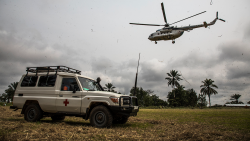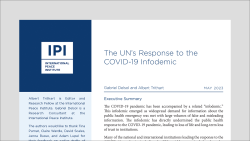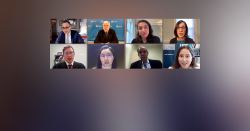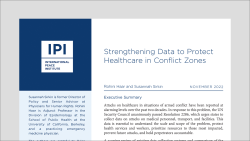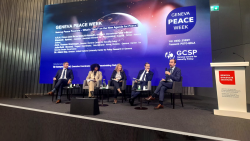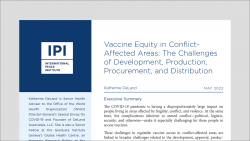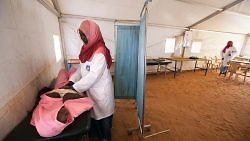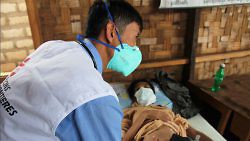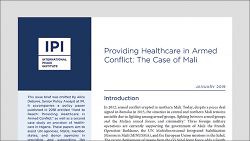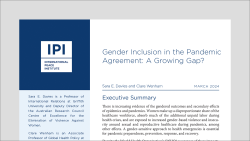
There is increasing evidence of the gendered outcomes and secondary effects of epidemics and pandemics. Women make up a disproportionate share of the healthcare workforce, absorb much of the additional unpaid labor during health crises, and are exposed to increased gender-based violence and insecurity around sexual and reproductive healthcare during pandemics, among other effects. A […]
Read more